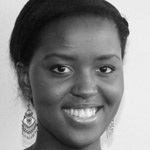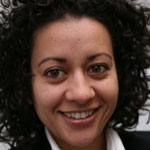What it takes… to become an agency CEO
Roger Banks
Incite MD and ex-Research International chief
Running a successful research agency is (conceptually at least) very simple, as is the path to becoming a research agency CEO: work with great people and do great work for great clients.
There’s nothing to beat client plaudits in getting you on the first rung of the management ladder. The starting point in any agency researcher’s career has to be a strong personal focus on delivering what clients need. Once you’ve done this you can start getting the team to deliver.
Great people are the foundation of any professional service business. For research, you need those who are intellectually smart, practical, curious, interested in what makes people tick and in why they behave the way they do. As you enter your first management role you need to keep the bar high, hiring only the very best people, rewarding them well and making sure that you support their personal development.
Enabling your people to do great work is also critical. This means research that is hypothesis-driven, rigorous, succinct and brilliantly communicated. Never settle for less than the best. To get this to work, you need to liberate your people from bureaucracy, forms, meetings, office politics, paperwork… anything that distracts them from doing what they joined our industry to do: great market research.
And give people great clients to work alongside, clients with interesting problems that motivate and challenge them, and with the resources to allow them to do the great work that they aspire to deliver.
Focus on these three things: great people, great work and great clients, and you will not only find yourself becoming a research agency CEO, but you will also create a virtuous circle that delivers great returns to your shareholders, thus ensuring you keep your dream job of running a successful research agency.
And don’t forget the reason you got there in the first place is that you are a great researcher – keep spending as much of your time as you can with your clients so they continue to benefit from your experience.
What it takes… to start your own business
Chris Havemann
Co-founder, Research Now
I think the key thing in the early stages of a new business is to do something for a client better than someone else can and do something that they will pay you for.
You build a business by winning a single client on a single contract. You then have to do everything possible to turn that client into a happy one who will give you repeat business, then you go after another one.
“It’s important not to underestimate the task you’ve set yourself. Building a business might be harder than you thought and take longer than expected”
Chris Havemann
It sounds very simplistic but when you start a company you have so many legal, finance and administrational things to do that people get diverted from that, so I think a razor-sharp focus on ‘Who is my client and why should they pay me?’ is important. If you can get a toehold and some happy clients in the early stages it’s amazing how a bit of time, sweat and tears starts to pay off.
The other thing is never to forget how resilient you have to be. We had three tough years with a loss-making business but eventually turned a corner. I think a lot of people would have given up before then.
It’s important not to underestimate the task you’ve set yourself. Building a business might be harder than you thought and take longer than you expected. It can be like one of these big government IT projects that never come in on time and budget. So, finally, you also need a solid understanding of cash – when you might run out of it and when you might need some.
What it takes… to become a community manager
Mary Waireri
Communities analyst, FreshMinds
A community manager is there to facilitate conversation, I think that’s what the role boils down to. After graduating with a degree in history I worked for a year in a media agency. I was lucky that I got to work with clients that were interested in trying to use social media and new platforms, and I was interested in how those things can affect how we get insight.
“Some people compare being a community manager to being the host of a party, or managing a delicate ecosystem. You have to balance all the different elements”
Mary Waireri
If you’re interested in working in social media research, you can come from different industries, because these are issues that are prevalent across the board.
For someone who works in traditional research, the first thing to do is familiarise yourself with the latest trends and technology. The better you understand what’s available, the easier it’ll be to identify opportunities.
You also need to be comfortable talking to participants on a down-to-earth, one-to-one level. People expect to have less formal relationships online now. Your average participant isn’t really expecting to join an online community that feels like work. It’s about striking a balance.
Some people compare being a community manager to being the host of a party, or managing a delicate ecosystem. You have to balance all the different elements.
What it takes… to become an ethnographer
Victoria Guyatt
Ipsos Mori
My job is everything from writing proposals right through to presenting films and findings. In the past I’ve been out filming and interviewing but now I probably spend most of my time doing analysis and working with editors.
I did my undergraduate degree in physical geography and a research-based masters using ethnographic techniques, studying indigenous female scientists in New Zealand. I’d always had an interest in the finer details of why people do stuff and how reality is different to reported behaviour, but I don’t think at any point I decided to become an ethnographer.
A big challenge is educating your colleagues and clients on the value that ethnography can bring over and above other methods. A lot of people in research have done bits and pieces of ethnography but are a bit scared of it. They don’t believe that people will let you into their lives – but they do.
It’s about taking the time to stay with people and observe them, and knowing that that has meaning and being willing to invest yourself in that process.
The smaller things, like watching people with their family, the day-to-day rituals people have – research agencies aren’t always very good at attaching meaning to that and answering their clients’ objectives.










0 Comments